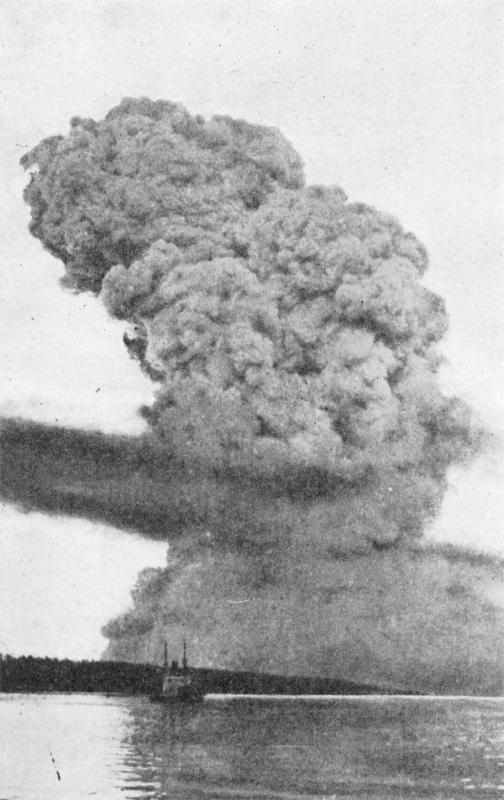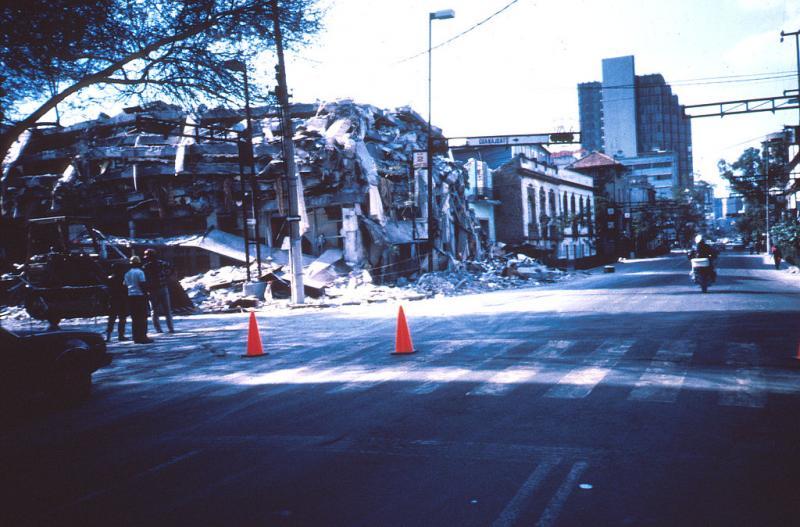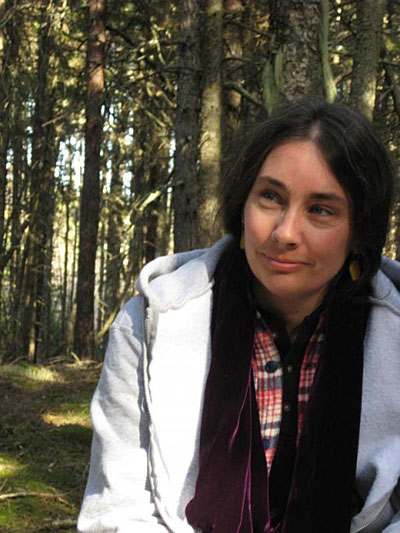Eva Murray: Remember civilian heroes – A Christmas tree, two guys named Coleman, and a lot of other people
 A view across the devastated neighborhood of Richmond in Halifax, Nova Scotia, after the Halifax Explosion, looking toward the Dartmouth side of the harbor. The steamship Imo, one of the ships in the collision that triggered the explosion, can be seen aground on the far side of the harbor, Halifax after December 6, 1917. Nova Scotia Archives and Records Management, Negative Number DNDHfxExplosion-2; Author Unknown wikidata:Q4233718
A view across the devastated neighborhood of Richmond in Halifax, Nova Scotia, after the Halifax Explosion, looking toward the Dartmouth side of the harbor. The steamship Imo, one of the ships in the collision that triggered the explosion, can be seen aground on the far side of the harbor, Halifax after December 6, 1917. Nova Scotia Archives and Records Management, Negative Number DNDHfxExplosion-2; Author Unknown wikidata:Q4233718
 View of the column of smoke raised by the Halifax Explosion. One of only a few photographs of the blast itself. 6 Dec. 1917 / Halifax, N.S.
Source: Library and Archives Canada/PA-166585; Author Unknown wikidata: Q4233718
View of the column of smoke raised by the Halifax Explosion. One of only a few photographs of the blast itself. 6 Dec. 1917 / Halifax, N.S.
Source: Library and Archives Canada/PA-166585; Author Unknown wikidata: Q4233718
 Mexico City Earthquake, September 19, 1985. Collapsed eight-story building. Source: /libraryphoto.cr.usgs.gov/cgi-bin/show_picture.cgi?ID=ID.%20Celebi,%20M.%2013ct; Author, United States Geological Survey
Mexico City Earthquake, September 19, 1985. Collapsed eight-story building. Source: /libraryphoto.cr.usgs.gov/cgi-bin/show_picture.cgi?ID=ID.%20Celebi,%20M.%2013ct; Author, United States Geological Survey
 A view across the devastated neighborhood of Richmond in Halifax, Nova Scotia, after the Halifax Explosion, looking toward the Dartmouth side of the harbor. The steamship Imo, one of the ships in the collision that triggered the explosion, can be seen aground on the far side of the harbor, Halifax after December 6, 1917. Nova Scotia Archives and Records Management, Negative Number DNDHfxExplosion-2; Author Unknown wikidata:Q4233718
A view across the devastated neighborhood of Richmond in Halifax, Nova Scotia, after the Halifax Explosion, looking toward the Dartmouth side of the harbor. The steamship Imo, one of the ships in the collision that triggered the explosion, can be seen aground on the far side of the harbor, Halifax after December 6, 1917. Nova Scotia Archives and Records Management, Negative Number DNDHfxExplosion-2; Author Unknown wikidata:Q4233718
 View of the column of smoke raised by the Halifax Explosion. One of only a few photographs of the blast itself. 6 Dec. 1917 / Halifax, N.S.
Source: Library and Archives Canada/PA-166585; Author Unknown wikidata: Q4233718
View of the column of smoke raised by the Halifax Explosion. One of only a few photographs of the blast itself. 6 Dec. 1917 / Halifax, N.S.
Source: Library and Archives Canada/PA-166585; Author Unknown wikidata: Q4233718
 Mexico City Earthquake, September 19, 1985. Collapsed eight-story building. Source: /libraryphoto.cr.usgs.gov/cgi-bin/show_picture.cgi?ID=ID.%20Celebi,%20M.%2013ct; Author, United States Geological Survey
Mexico City Earthquake, September 19, 1985. Collapsed eight-story building. Source: /libraryphoto.cr.usgs.gov/cgi-bin/show_picture.cgi?ID=ID.%20Celebi,%20M.%2013ct; Author, United States Geological Survey
There was a story I happened to see twice on the evening news back on Thursday — first on the NBC evening news, and then another report ran on the PBS NewsHour. Two extremely brave civilians have set up an emergency clinic in Mosul, Iraq. Da'esh is attacking the city, and the injured have nowhere close they can go. According to the PBS piece, "These two American volunteers, both just 27 years old, are the first and only point of help civilians and Iraqi army soldiers get this close to the front line of fighting in Mosul. Pete Reed is from New Jersey. After two tours in Afghanistan as a Marine, he came to Iraq to help. Derek Coleman is from San Diego. He was a machinist in a factory with some medical training before coming here as a volunteer."
Neither is a physician. Reed and Coleman call themselves "volunteer medics" and work to stabilize patients so they'll be able to survive the trip to a hospital. Many of their patients are small children. Coleman and Reed see death every day, and they work in body armor. They have no reason to be there except that they have chosen to help. They are heroes. They are, thankfully, still alive.
Switching gears a bit, today — December 6 — we might take a few minutes to think back on the Halifax Explosion. Have you heard about that incident? Many in Boston have, as that city, by custom, receives a Christmas tree each year from the citizens of Halifax, Nova Scotia. 99 years ago — during World War I — a French ship laden with explosives collided in a horrific accident with a Norwegian ship in the harbor. The munitions ship caught fire and, 20 minutes later, exploded. Much of Halifax was demolished.
"Some people believe this may have been the biggest man-made explosion in the world until the invention of atomic weapons," Peter Drummey, a librarian at the Massachusetts Historical Society, told National Public Radio.
According to a recent NPR story about the annual Christmas tree shipment to Boston Common from Nova Scotia, "More than a thousand people were killed instantly. Whole neighborhoods were destroyed. Later that morning, word reached Massachusetts. Without even knowing the full details, the governor dispatched a train carrying doctors, Red Cross nurses and medical supplies, which fought its way 700 miles through a blizzard to reach a devastated Halifax."
"Their presence was felt almost immediately and of course that very rapid response saved lives," added Drummey. The aid workers set up hospitals, built shelters and combed the snowy rubble for survivors.
As it happens I was in Halifax on September 11 of this year. At the Maritime Museum of the Atlantic, alongside artifacts of the Titanic and the first trans-Atlantic cable, I stood looking at a display describing the heroism of railroad dispatcher and telegraph operator Vince Coleman. Having got word of the ship's cargo of explosives from a sailor who had abandoned ship, Coleman stayed at his post, telegraphing messages to stop incoming passenger trains, until he, like so many, was killed in the blast.
I found it rather meaningful to be learning of this man's heroism on September 11. Each year on September 11, and on December 6, and when I see stories like the volunteer medics of Mosul, I am moved to think about civilian responders. On the day that has come to be called "Nine-Eleven" I believe we pay way too much attention to the culprits. America does not want a national day of remembrance for terrorists! That day was without doubt an insult to our national pride and sense of safety, as well as being three discretely local disasters, but in my opinion we need to resist turning our memories of "9-11" into a sort of retroactive war memorial. If you remember, September 11th was not about military. They were not the ones who happened to be the heroes on scene that day. It was firefighters, and other uniformed public safety people, and lots and lots of random working folks, none of whom woke that morning thinking they would end up being an emergency responder. A lot of them died, of course, many trying to help, to save, to rescue.
We should remember and honor those everywhere who run toward a fire, toward an explosion, toward wreckage, toward suffering. We should remember those who, like Vince Coleman, didn't run away.
Other examples might include the western Maine volunteer firefighters who went to Lac Megantic, Quebec, when that town burned nearly to the ground after an oil train explosion in 2013.
I like the idea of a day of remembrance involving multiple countries. It makes sense to remember that disaster response is not about national boundaries, or politics, or even about leadership. It's about courage, it is often about selflessness, and it's about human-to-human interaction in the moment. No leader can order an individual to feel any of those things.
We might wish a three-faceted monument, indicating the three countries which are the close neighbors of North America, and the three causes of mayhem: the accident (such as Halifax,) man-made intentional destruction (the obvious example being 9-11) and the natural disaster (for example, the Mexico City earthquake of 1985).
On September 19, 1985, an earthquake registering 8 on the Richter scale killed at least 5,000 in Mexico. According to Wikipedia, "In the hours and days immediately after the first shock, there was an enormous response and solidarity among the city population of 18 million people. Ordinary citizens organized brigades to help with rescue efforts and to provide food, clothing and emotional support to the homeless."
Spare us the usual boilerplate about, "We don't want civilians involved; they'll just get hurt. Leave disaster response to the trained professionals." That's simply not the real world. As an EMT I can understand; I have been on calls where there were people running around, maybe panicking, maybe intoxicated, completely in the way while trying to help, and they weren't any help, to be sure. But again, we should not be giving all the attention to human flaws and weak links; rather let us salute the urge to help. Society in general needs to acknowledge brave people who will do what needs to be done. Anybody who works with a degree of isolation—out to sea, on an oil platform, in the backcountry, in a mine, on a remote ranch, in space—is their own response agency. In the middle of a disaster, when resources are strained or exhausted, you cannot wait for "the authorities" to show up and save the day. No; there will be heroes.
If you are interested in this subject, permit me to recommend a book. Rebecca Solnit wrote "A Paradise Built in Hell" (2010) about "ordinary" people rising to the occasion to respond in inspiring ways, in disasters of sometimes unimaginable proportion including the Halifax Explosion and 9-11. I enjoyed Solnit's book shortly after it came out, and these days, it may be worth a second read.
I propose, as Halifax and Boston remember that awful event, that if Americans want to make September 11—or any other day—a real holiday in remembrance of the disaster, that we concentrate on the responders. Let us suitably honor with all solemnity those who died trying to rescue, and keep in mind that we are all in this together. I suggest a multi-national monument or shared special day. This kind of heroism has nothing to do with one's country (as opposed to military heroism, which obviously does). This kind of courage is about one's simple humanity.
In some cases we will never know the names of those who ran to help another person in trouble. Many who died trying to help—almost certainly in the World Trade Center, quite possibly in Lac Megantic and other places—took their heroic stories with them. No doubt they didn't feel much like heroes.
They were, though. The best way to honor those who died on 9-11, in my opinion, is to stop giving so much of the attention to the villains of the story.
If we put up a rock or a plaque or an obelisk somewhere — and I couldn't begin to say where — let me suggest the quote from Fred Rogers be engraved thereon, the one about how to reply to children who ask about the horrible things they see on the news, and in the world: "Look for the helpers." Put it up there in French and in Spanish, too.
Eva Murray lives on Matinicus
More Industrial Arts
Eva Murray: Haul away, haul away, boys...
Politics, the middle ground, and a few probably unwelcome observations (Nov. 5, 2016)
Islander (Oct. 20, 2016)
• Eva Murray: Brier, Muck and Igiugig (Sept. 28, 2016)
• Doctor Lightning (June 27, 2016)
• Search and Rescue (May 27, 2016)
• It's about the water (May 11, 2016)
• Eva Murray: In defiance of mud season - tips for the inspired homeowner
• Plesiosynchronicity, and a snowy day
• A day of planning and practicing in preparation for major storms (posted March 10, 2016)
• Time to take down the (island) Christmas tree (posted March 3, 2016)
• Snow Day on Matinicus (posted Feb. 14, 2016)
•Going to Rockland for pie (and beer and art glass and ukuleles...) (posted Feb. 3, 2016)
•Eva Murray: Pencil to paper (posted Jan. 21, 2016)
• A new year, a new winter (posted Dec. 31, 2015)
• ‘A tiny, happy place’ (posted Dec. 14, 2015)
• Metal artist Blair Clement brings wave-washed junk to life (posted Sept. 20, 2015)
•Maine veterans and a most sentimental biker (posted June 1, 2015)
•Wild Island Child (posted April 8, 2015)
• Last holdouts of offshore outpost finally accept reality (posted April 1, 2015)
•Truck on boat (posted March 16, 2015)
•Public works (posted Feb. 25, 2015)
• A constant struggle (posted Feb. 14, 2015)
• Pie Hero, Pie Villain (posted Jan. 29, 2015)
• Safely out to sea (posted Jan. 27, 2015)
• Je suis (posted Jan. 13, 2015)
• Making merry on Matinicus, with only a few (posted Dec. 25, 2014)
• The smallest emergency medical service around (posted Sept. 29, 2014)
• Islanders host 'Man Overboard!' discussion, rescue demonstrations (posted Sept. 8, 2014)
• Logistics (posted July 31, 2014)
• Black Hawks over Criehaven (posted July 16, 2014)
• On a sunny Saturday, when the steel band came to Matinicus (posted June 6, 2014)
• The last day of winter (posted April 16, 2014)
• Puppies, basketball champs not injured by explosive five-bulldozer wreck, dump fire, and zoning board (posted March 13, 2014)
• In a good old hardware store (in memory of Everett Crabtree) (posted Feb. 28, 2014)
• What is it like to be one of Maine's Search and Rescue volunteers? (posted Feb. 9, 2014)
• Arts and hobbies (posted Jan. 31, 2014)
• Santa Claus and the yard sales - why I own more monkey wrenches than you do (posted Jan. 15, 2014)
• Quiet on this last day of the year (Dec. 31, 2013)
• A one-room school Christmas (posted Dec. 21, 2013)
• Here's wishing us all a little rebellion in this happy season (posted Dec. 12, 2013)
• Roadside assistance (posted Nov. 27, 2013)
• On the many kinds of emergency responders (posted Nov. 18, 2013)
• (In defense of...) Breakfast for supper (posted Oct. 22, 2013)
• Fish Factory (posted Sept. 9, 2013)
• 350 dot Rockland... and many ruminations on small efforts (posted Aug. 30, 2013)
• Trains and planes and heroes (posted July 15, 2013)
• Joining the community of artists (posted July 4, 2013)
• Worth every penny (posted July 27, 2013)
• It's about showing up. Some thoughts on EMS Week (posted May 27, 2013)
• Ethanol, gasoline, and public safety (posted April 17, 2013)
• A system that makes it hard on people who want to do the right thing (part 2) (posted March 29, 2013)
• A system that makes it hard on people who want to do the right thing (part 1) (posted March 21, 2013)
• 'It's important' (posted Jan. 18, 2013)
• Tree crew (posted Dec. 28, 2012)
• Light the candles (posted Dec. 13, 2012)
• Firewood (posted Dec. 2, 2012)
• Missing man formation (posted Oct. 18, 2012)
• In the middle of the bay (posted Oct. 3, 2012)
Event Date
Address
United States





























